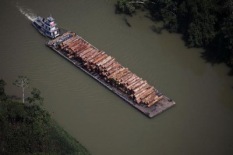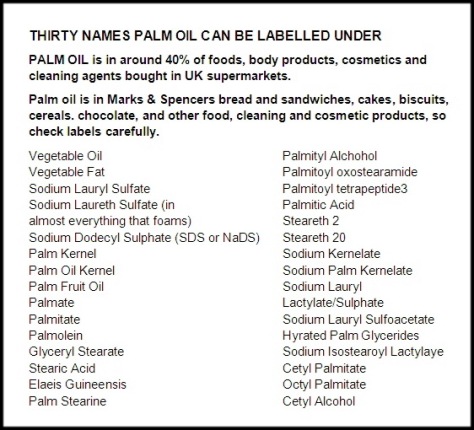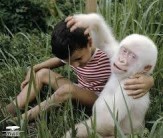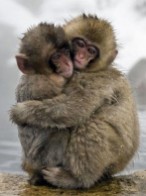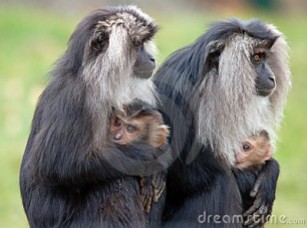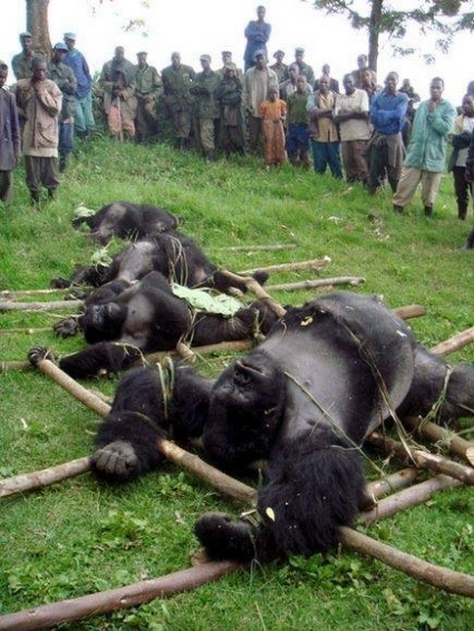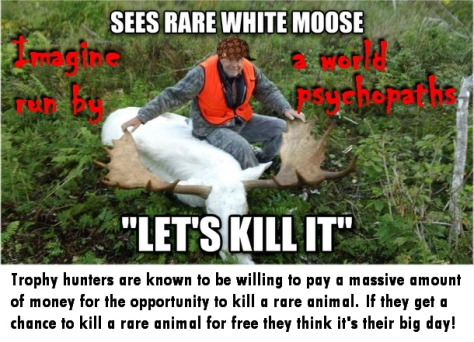This is a list of rescue and transport organisations with links to helpful information on homeless pets and shelters and anything else related such as food, health, etc. CTRL F will search.

Please note this list is a work in progress. It is updated about once a month.
Any GOLD text is a link, just right click on it to GO TO the link, or to COPY or SAVE then go to destination and right click PASTE to insert link.
There’s a lot of useful information and many links in this article. It’s all one page and definitely worth taking a little time to look through so you know what there is here.
Please use CTRL F to search
Fostering
Facebook Advocacy and Rescues
Crossposting Guides
New York AC&C and NYC Rescues
Rescues for Senior and Special Needs Breed Specific and Rescues for Other Animals
Transport
Pets in Military Families
Organisations Offering Aid
No Kill Solutions
TNR and Helping Feral Cats
Hoarding Information and Resources
Scam Rescues
Shelter Reform Sites
General Information and Resources
Picture Gallery
FOSTERING
Have you decided to rescue a cat on death row? Please step up and save a life. Cats and dogs of all ages are being put to death because there are not enough fosters. Many kill-listed cats have earned their ticket to freedom as ‘bathroom cats’ in foster homes for a short time and are now in loving forever homes. “I would rather cry watching them leave our home to live a life of happiness and joy in a loving home rather than cry because no one stepped up to help them and they died alone, frightened and sad in the shelter. Fostering saves lives, try it
their ticket to freedom as ‘bathroom cats’ in foster homes for a short time and are now in loving forever homes. “I would rather cry watching them leave our home to live a life of happiness and joy in a loving home rather than cry because no one stepped up to help them and they died alone, frightened and sad in the shelter. Fostering saves lives, try it .”
.”
Local campaigns to find fosters can be easily set up like this one
http://www.signupgenius.com/go/4090c48a9aa22a02-pcac3
Fostering a pet FAQs
http://www.petfinder.com/animal-shelters-and-rescues/fostering-dogs/fostering-a-pet-faq/
16 reasons to foster a shelter pet
http://www.huffingtonpost.com/2015/02/23/foster-shelter-pet_n_6720804.html
Reasons to foster
https://www.facebook.com/Petfinder/photos/a.475509018214.255612.8354538214/10152809169293215/?type=1
How to get started as a foster
http://support.washhumane.org/site/PageServer?pagename=volunteerfoster_foster
Guardian Angel Fostering
https://www.facebook.com/guardianangelpetfostering
Animal Rescue Foster Program
https://www.facebook.com/pages/Animal-Rescue-Foster-Program/128626147973
Fur Angels Foster Parent List
https://www.facebook.com/pages/Fur-Angels-Foster-Parent-List/1513919568841095
National Rescue Adopt and Foster Group
https://www.facebook.com/groups/344408295588711/
List of kitten nurseries state to state
http://healthypets.mercola.com/sites/healthypets/archive/2015/02/26/kitten-nurseries.aspx
All states animal fosters
https://www.facebook.com/allstatesanimalfosters
Imagine pet rescue mainly for dogs anywhere foster scheme
http://imaginepetrescue.org/
https://www.facebook.com/imaginepetrescue?_rdr
FACEBOOK ADVOCACY AND RESCUES
Tagging local rescues when crossposting helps pets find homes
Animal rescues on Facebook listed by state etc.
http://www.advocateforsavingdogs.org/animalrescuesonfacebooklistedbystate.html
Animal rescue Facebook directory etc.
http://www.lacroixtees.com/fb_directory/animal-rescue/index.php
To find pets, rescues, or shelters by area etc.
https://www.petfinder.com/animal-shelters-and-rescues/search
To find rescues or shelters
http://www.adoptapet.com/animal-shelters
Rescues by state etc.
http://www.rescueme.org/states
Click this pic for a list of specialist and other rescues by area
http://www.rescuedismyfavoritebreed.org/

Bambi’s Hope rescue blogger links to shelters pullers and transporters
http://bambishoperescue.blogspot.co.uk/2014/09/links-to-shelter-pullers-transporters.html
Shelter list by county for California only
http://www.rescuers.com/shelters.htm
CACC adoptable pets and info for those wanting to adopt
https://www.facebook.com/notes/cacc-adoptable-pets/wanting-to-adopt/352429148201954
Find a pet or rescue etc. here
http://www.adoptapet.com/cat-adoption
Animal Shelter adopt a pet; dogs, cats, puppies, kittens! Humane Society, SPCA. Lost and found data from hundreds of animal shelters in the US and Canada. Breed search, lost and found pet matching service. Can look up animals here with shelter’s zip code. Go to right side look for location then use this shelter list; left side click species; animals for adoption. It is updated every hour and will tell you how long an animal has been there and start getting twitchy when it approaches two weeks but if intake #’s are high, two weeks may not apply. Just need to move animals out asap
http://petharbor.com/
Rescue Reviews
http://www.rescuereview.co.uk/
CROSSPOSTING GUIDES
Network to reach many more people
http://1drv.ms/1Cy1Vli
The love/hate relationship of social media and rescue
https://bourbondog.wordpress.com/2014/05/15/the-lovehate-relationship-of-social-media-and-rescue/
Facebook in animal rights advocacy by Nicole Garner
http://1drv.ms/1B2o1pk
Using Facebook to help needy pets you might be doing it wrong
http://www.petsadviser.com/animal-welfare/social-media-rescue/
Click here for free Facebook course for animal rescue groups
http://www.rescuedismyfavoritebreed.org/FB2.htm
Crossposter’s guide also a Facebook group
https://www.facebook.com/groups/539984692705068/
Starting a Facebook thread for animals who need immediate help
https://www.facebook.com/notes/nong-obieta/starting-a-thread-for-urgent-animals-that-need-immediate-help/368901886494713
More immediate exposure on Facebook for urgent animals
https://www.facebook.com/notes/nong-obieta/for-more-immediate-exposure-for-your-urgent-animals/365626646822237
NEW YORK NYC AC&C SHELTERS AND RESCUES
If you are local to the NYC Tri-State area: New England, General North-east and serious about adopting or fostering this kitty, please email the URGENT help desk now at urgentassistancenyc@gmail.com. Experienced volunteers will guide you through the process.
Fostering is easy and saves lives. The rescue will cover vet bills for the duration of the foster. Help and advice is available from the rescue and other organisations. If you need advice and assistance speak to the current PODR Adminstrators.
Transport is provided for adoptions up to four hours out of NYC at no cost by Mayor’s Alliance for NYC Animals. Arrangements can be made to meet part-way. For fosters delivery is available within NYC and also sometimes out of town. They have been made to CT, PA, and NJ.
If you want to foster or adopt and need help or advice please email: help@urgentpetsondeathrow.org
The following is a list of rescues that might be able to assist. Remember, time is sensitive. They begin killing at 6am, the morning after these lists are posted.
Placing applications with more than one group increases the chances of someone being able to see and respond quickly, as this improves your chances of being approved. When at all possible, please try to fill out applications and get approved to adopt or foster BEFORE the animal is on ‘the list’ and it is at the 11th hour!
MANY RESCUES HAVE APPLICATIONS RIGHT ON THEIR SITE When writing them, be sure to indicate the animal ID number, name and shelter location in the SUBJECT line. You must include all contact info for yourself, including email and phone. Explain to them that the animal is on the ACC euthanasia list for the next morning and that you would like to foster/adopt.
the animal ID number, name and shelter location in the SUBJECT line. You must include all contact info for yourself, including email and phone. Explain to them that the animal is on the ACC euthanasia list for the next morning and that you would like to foster/adopt.
List of up to date list of rescues approved to pull from NYC AC&C
https://www.facebook.com/notes/judith-mcaloney/nyc-animal-care-and-control-rescue-list-posted-7-30-2014/796972123656177?pnref=lhc
Urgent Pets on Death Row list of NY rescues
https://www.facebook.com/notes/pets-on-death-row-urgent-death-row-cats/rescue-contact-information/320666967994014
Urgent Pets on Death Row NYCACC information and news
http://www.urgentpetsondeathrow.org/category/news/incompetence-acc/
To foster or adopt an urgent cat from NYC
https://www.facebook.com/nycurgentcats/app_203351739677351
Helping out of state adopters/foster save from NYACC
https://www.facebook.com/groups/203804499685280/
BREED SPECIFIC, SPECIALIST RESCUES AND RESCUES FOR OTHER ANIMALS
This list includes some breed-specific rescues as well as rescues that specialize in animals other than dogs
Rescues for Senior and Special Needs
Blind Cat Rescue and Sanctuary Inc
https://www.facebook.com/pages/Blind-Cat-Rescue-and-Sanctuary-Inc/121386005165
Blind/Deaf Shelter Dogs Networking
https://www.facebook.com/BlindDeafNetworking?fref=photo
Blind Deaf Disabled Injured Special Needs Dog Cat Rescue
https://www.facebook.com/pages/Blind-Deaf-Disabled-Injured-Special-Needs-Dog-Cat-Rescue-Network/150735001663519?fref=ts
Red Hook Dog Rescue – Brooklyn, NY
Contact: Harriet Zucker
Email: hszucker@mac.com
http://www.facebook.com/pages/Red-Hook-Dog-Rescue/102452760768?sk=wall
K9Kastle – NY
Mostly rescues small, elderly, or special needs dogs. Email
Tara at MaddieK9@aol.com, Emily at mle65@hotmail.com or Nancy at foreverbogie@aol.com for an application for adoption or fostering and they will gladly send you an application. Other email: K9Kastle@gmail.com
www.facebook.com/pages/K9Kastle/198020466874807#!/pages/K9Kastle/198020466874807?sk=info
Black Cats
Black cats Urgent Rescue
https://www.facebook.com/BlackCatsUrgentRescue
Black Cats in Need of Rescue
https://www.facebook.com/pages/Black-cats-in-need-of-rescueadoption/135042619878586
Black Cats Community
https://www.facebook.com/pages/Black-Cats/163840368514
I Love Black Cats
https://www.facebook.com/LoveBlackCats
Black Cats Need Love
https://www.facebook.com/groups/50098066149/
Black Cats in Need of Rescue and Adoption
https://www.facebook.com/pages/Black-cats-in-need-of-rescueadoption/135042619878586
Black Cat Rescue
https://www.facebook.com/blackcatrescue
For the Love of Black Cats
https://www.facebook.com/pages/For-the-Love-of-Black-Cats-Black-Cat-Appreciation-Page/186841014709029
I Love Black Cats
https://www.facebook.com/pages/I-love-Black-Cats/94786207892
The Black Cat Society of GCHS
https://www.facebook.com/blackcatsocietyGCHS
Siamese Cats
List of Siamese rescues by area
http://siamese.rescueshelter.com/
Siamese Cat adoption blog site
http://siamese.rescueme.org/blog
Siamese Cat Rescue Center
https://www.facebook.com/search/str/Siamese%20Cat%20Rescue%20Center/keywords_top
http://va.siameserescue.org/
siamlist@siamlist.org
Tel (540) 672-6373
Siamese Rescue
https://www.facebook.com/siamese.rescueme.org?fref=ts
Siamese Angels
https://www.facebook.com/pages/Siamese-Angels/146193458859735?fref=ts
Siamese “Rehome” Angels
https://www.facebook.com/SiameseClAngels
Second Hand Siamese (Flowery Branch, Georgia)
https://www.facebook.com/pages/Second-Hand-Siamese-Flowery-Branch-Georgia/264187896927783?fref=ts
Rocky Mountain Siamese Rescue
https://www.facebook.com/RMSiameseRescue
Southern California Siamese Rescue
https://www.facebook.com/pages/Southern-California-Siamese-Rescue/99634791910
http://cs.siameserescue.org/
Siamese Cats: Finding Rescues, Homes and Love! (Join)
https://www.facebook.com/groups/142064669162668/
Dogs Cats and Other Animals
German shepherd rescues by state
http://www.agsra.com/listings.html
Abandoned Angels Cocker Spaniel Rescue
Adopt A Boxer Rescue
Adopt-A-Dog
All About Spay Neuter
All Sentient Beings
Almost Home Animal Rescue & Adoption
American Bulldog Rescue
American Bullmastiff Association Rescue Service
American Society for the Prevention of Cruelty to Animals (ASPCA)
Angela’s Felines
Animal Care & Control of NYC (AC&C)
Animal Center of Queens
Animal Haven
Animalkind
Animal Rescue Force (ARF)
Animal Rescue Fund of the Hamptons
Animals Can’t Talk (ACT)
Animals Can’t Talk Rescue and Adoption (ACT Rescue and Adoption)
Animal Welfare Society
Anjellicle Cats Rescue
A Place for Us
Art for Animals
A Tail At A Time
Barbara the Cat Lady
Bideawee
Big Apple Bull Terrier Rescue
Bobbi and the Strays
Boxer Angels Rescue
Brooklyn Animal Action
Brooklyn Animal Resource Coalition (BARC)
Brooklyn Bridge Animal Welfare Coalition
Cascade Beagle Rescue–East
Cat Assistance Inc.
City Critters
Cocker Spaniel Rescue of New Jersey
CSM Stray Foundation (USA) Inc.
Curly Tail Pug RescueCrested Guardians
Dalmatian Adoption
Derrek’s Gleeful Rescue
Destiny’s Pet ProjectDoberman Pinscher Club of America Rescue Committee
Dog Habitat Rescue
Eastern German Shorthaired Pointer Club Rescue Program
English Bull Terrier Rescue of New York & New Jersey
Eve’s Sanctuary
Feathered Friends Parrot Adoption
Feline Rescue Mission
Feline Rescue of Staten Island
Ferals in Peril
First Run Medical & Rescue Fund for Animals
For Animals, Inc.
Forgotten Friends of Long Island
For Our Friends
For the Love of Dog (Rottweilers)
Four Paws Sake NYC
Friendly Ferals
Friends of Rescued Mastiffs
German Shepherd Rescue of Central New York
German Shepherd Rescue of Southeastern Pennsylvania in Brooklyn, NY
Glen Highland Farm/Sweet Border Collie Rescue
Glen Wild Animal Rescue
GRROWLS (Golden Retriever Rescue Operated With Love Statewide)
Gotham City Kitties
Grateful Greyhounds
Green Mountain Pug Rescue
Heart and Hand Society
Heart and Soul Animal Rescue
HEART: Help Every Animal Restore Trust
Heavenly Huskies & Canine Companions
House Rabbit Society
Humane Society of New York
The Husky House
Internet Miniature Pinscher Service (IMPS)
Italian Greyhound Rescue NYC (IGRNYC)
K9Kastle
Kitten Little Rescue
KittyKind
Kodi’s Club
Labrador Retriever Rescue – CT
Labs4Rescue
Patricia H. Ladew Foundation
Le Cats on the Water
Lifeline Animal Rescue
Linda’s Feral Cat Assistance
Little Shelter Animal Rescue & Adoption Center
Long Beach Humane Society
Long Island Bulldog Rescue
Long Island Golden Retriever Rescue
Long Island GreyHound Transfer
Long Island Labrador Retriever Rescue
Louie’s Legacy Animal Rescue
Louis Animal Foundation
Loving Touch
MetroMalts: Metropolitan Maltese Rescue
Mid-Atlantic Basset Hound Rescue
Mid-Atlantic Great Dane Rescue League
Mighty Mutts
Miss Rumples for Small Dogs
Mountain Rottie ResQ (MRR) of New York
Neighborhood Cats
New England Border Collie Rescue
New England Old English Sheepdog Rescue
New Rochelle Humane Society
NJ Schnauzer Rescue Network
Northeastern Boxer Rescue
Northern New England Dog Rescue
North Fork Animal Welfare League
North Shore Animal League America
NYC Shiba Rescue
Only Hope Cat Rescue
Orphaned Pets, Inc.
Paws To Love Adoptions
People for Animals
Peppertree Rescue
Pet Adoption League Inc./Chow Rescue of NY
PET-I-CARE NYC Adoption Program
P.L.U.T.O. Rescue of Richmond County
Poor Animals of St. Francis
Posh Pets Rescue
Rabbit Rescue & Rehab
Rawhide Rescue
Ready for Rescue
Red Hook Dog Rescue
R.S.V.P. Inc. (Responsible Solutions for Valued Pets)
Russell Refuge (Jack Russell Terriers)
Safe Hounds Beagle Rescue
S.A.V.E. Animal Rescue
Save-A-Pet Animal Rescue and Adoption Center
SaveKitty Foundation
Save Our Strays
Scottish Terrier Club of Greater New York
Sean Casey Animal Rescue
The Sheltering Wing Bird Preservation and Adoptions
Shelter Survivors
Shore Hearts Golden Retriever Rescue
Small Paws Rescue (Bichon Frise)
Social Tees Animal Rescue
SPCA of Connecticut
Staten Island Council for Animal Welfare (SICAW)
Stray from the Heart
Tails of Courage
Tavi & Friends / Tavi’s Curls
Tigger Foundation
Tiny Treasures Rescue
Treasured k9s
Tri-State Basset Hound Rescue
Tri-State Weimeraner Rescue
Underdog ResQ
United Action for Animals
Urban Cat League
Waggin’ Train Rescue
Waggytail Rescue
Willing Hearts Dalmatian Rescue
Woof Dog Rescue
The Worthy Pause Thrift & Gift Shop
Zani’s Furry Friend
TRANSPORT
There are many animal transport rescue groups that are FREE or cheap!! Don’t look at the sadness in a pet’s eyes and say: “Aaaww, I’d like to adopt him, but he’s too far away…” Follow these steps find a rescue and transport and he’s as good as yours!
First you have to find two rescues, one where the pet is and one where you are. They have to be put in touch with each other so your local rescue can do the home inspection for the rescue local to the shelter.
Each rescue will have their paperwork for her to fill out. Of course the first step is to notify the shelter that the pet is wanted (by phone AND EMAIL)
Don’t tell them too much, they are on a need to know basis. Some of them will try and throw a wrench into it.
Warnings
Most transport groups are run by rescuers, many on Facebook, and care about animals. Beware of rogues though who only care about the money to be made. There is only one well known such transport. Please use the contact form if you know of another transport that ought to be on this list.
Underground Railroad Rescued Kitty Network (URRKN) on Facebook run by Tina Lablanc
http://urrknexposed.wordpress.com/2014/10/09/urkkn-or-underground-railroad-rescued-kitty-network/
Air Travel
Air travel is not recommended with the commercial airlines in the normal way as animals are put in the cargo hold. The cargo areas are not temperature controlled, and especially in the winter and summer months, they can be uninhabitable, meaning that animals may not survive. There is one airline that has a good reputation for taking care of animals.
Forum discussion
http://www.tripadvisor.co.uk/ShowTopic-g1-i26969-k5959146-Best_airline_to_travel_with_pets-Traveling_with_Pets.html
Air Animal pet movers since 1977
http://www.airanimal.com/
No pet is too far too save!!
Imagine Home
https://www.facebook.com/imaginehomeorg
Kindred Hearts
https://www.facebook.com/groups/kindredheartsTC
Pets Transport Network Association (PETNA) run by Facebook ARAs and rescuers
http://dog-book.org/
Animal Transports Globally
http://advocateforsavingdogs.org/animaltransportsglobally/transportlinksintheus.html
Animal Transport Assistance for Precious Lives Needing Help
https://www.facebook.com/pages/Animal-Transport-Assistance-for-Precious-Lives-Needing-Transport-Help/125026690921055
Animal Transport Assistance for Precious Lives Needing Urgent Help
https://www.facebook.com/groups/405354889499828/
Animal Transport List for Take Action to Help Ban Pet Gas Chambers
https://www.facebook.com/notes/take-action-help-ban-animal-gas-chambers/transport-resource-list-/253133788100205
A New Leash on Life Rescue Transport
https://www.facebook.com/groups/587933794581456/
Animal Rescue Flights
http://www.animalrescueflights.org/
http://www.facebook.com/groups/animalrescueflights
Pilots & Paws
http://pilotsnpaws.org/
https://www.facebook.com/pilotsnpawsfanpage
Wings of Rescue
www.wingsofrescue.org
Rogers Rescue
http://www.rogersrescues.com/opportunities/
Operation Roger Truckers Pet Transport
http://operationroger.rescuegroups.org/
Johns C2C Transport LLC
https://www.facebook.com/JohnsC2CTransportLLC
California Animal Rescue Transportation
https://www.facebook.com/pages/California-Animal-Rescue-Transportation-CART/132565503430064
Also comments for incoming/outgoing out of state transports
START Shelter Transport Animal Rescue Team
https://www.facebook.com/startrescueteam
Brett Adams 714 507-0566
https://www.facebook.com/brettly99?fref=ts
Based in Anaheim, Ca., hauls for several of us on the West Coast from Ca. to WA/BC
Royce Bordes
Angels n’ Paws 909-743-4656
https://www.facebook.com/royce.bordes?fref=ts
http://angelsnpaws.com/transport-request-form.html
SoCal area to WA/BC border & more
Kevan Boston 760-518-7445
https://www.facebook.com/kevan.boston
SoCal area to WA/BC/Montana
4 PAWS Rescue Inc.
http://www.all4pawsrescue.com/Adopting-a-Pet.html
Peace Love Paws Rescue
https://www.facebook.com/PeaceLovePawsRescue
Pet Express Animal Transport
https://www.facebook.com/petexpress
Animal Transport Resources
http://www.animalresourcesinc.com/transport.php
Best Friends Animal Society
http://bestfriends.org/Resources/Resources-for-Rescuers/Help-for-Individuals/Animal-Transport-Resources/
Animal Resources Inc
http://www.animalresourcesinc.com/transport.php
Companion Pet Rescue & Transport of W Tn Inc
https://www.facebook.com/CompanionPetRescue
John Bloom C2C LLC coast to coast transport
https://www.facebook.com/JohnsC2CTransportLLC
541-232-9958
Freedom Train Animal Rescue Transports
www.freedomtraintransports.com
rhonda @ freedomtraintransports . com
Keith’s Rescue Transports
https://www.facebook.com/keithsrescuetransports
Debie Brown: Will transport up to 150 miles for free from any Los Angeles, CA Shelter. All anyone has to do is call her at (+1) (310) 528-6255. If she doesn’t answer she’ll call you right back.
Christopher Boyd transport at (+1) (618) 201 4449
John Hautzinger: transport within a decent range of LA shelters and only gas money is charged
The Road Home Transport (+1) (626) 502 6251
Rusty to the Rescue
https://www.facebook.com/RustyRescue?fref=ts
(+1) (714) 415 8343
rustytotherescue@gmail.com
Suzy at PET TAXI in California at (+1) (424) 653-4565 National USA
GROWL Rescue & Transport
https://www.facebook.com/pages/GROWL/257318230987994?ref=hl
Companion Pet Rescue & Transport of W. Tn., Inc.
http://www.facebook.com/CompanionPetRescue
Rescue Puppies on the Move: community
https://www.facebook.com/OperationHolly?fref=ts
Rural Shelter Transports
http://www.facebook.com/pages/Rural-Shelter-Transports/177977083829
Suzanne Shaps Dog Rescue and Transport Postings
http://www.facebook.com/pages/Suzanne-Shaps-Dog-Rescue-and-Transport-Postings/242459559661
Animal Rescue Flights
https://www.facebook.com/groups/animalrescueflights/
P.E.T.S. Animal Rescue Road Trip LLC
http://www.petsllc.net/index.php
https://www.facebook.com/petsllctransport?ref=stream&hc_location=stream
(+1) (877) 560-PETS or (+1) (877) 560-7387
Pets On Board Transport
https://www.facebook.com/PetsOnBoardTransport
petsonboardtransport@frontier.com
For a fast quote call: (+1) (888) 914–PETS or
(+1) (310) 899-6891
Holm to Home Transport Services
http://companies.findthebest.com/l/32011736/Holm-To-Home-Transport-Services-in-Cobleskill-NY
No website but transports everywhere
518-429-3518
Animal Rescue Flights
www.animalrescueflights.org
Fly Me Home for Pet Escorts from Egypt to Everywhere
https://www.facebook.com/groups/298138213667809/
ANOTHER LIST FOR TRANSPORT
Here is the list I use to find transporters. I have collected up through the months. I am still working on it. Some are paid but most are free. Some are actual transporter pages and some are pages to post your needs and then people will offer or you can ask to be added to a planned transport. Everyone is very helpful, Each one can be found on Facebook or the web, just type the name into the search in Facebook or Google.
Please try Rescue Road Warriors
Long distance ground transport, we specialize in private rides cross country. We also have local offices in Seattle, Portland, and San Francisco. Locally we offer pickup and drop off for daycares, boarding, and vet appointments.
Dog Gone Taxi
Woodinville, WA 98072
info@doggonetaxi.com
Phone 1 888.761.8626
www.doggonetaxi.com
Martha’s Mutt Movers/The Rescue Railroad
Animal Transport Group
Rescue Ride Share
“Take Me Home” Rescued Pets Transport Network
Transport for NY rescue dogs
Animal Rescue Facebook Directory
Comin’ Home
Crazy Canine Crew Pet Transport LLC
Travel all parts of Ohio and Western Pa
234 567 7372 and on Facebook
Debbie Brown 310-528-6255
Phone is the best way to get in touch with me if I’m needed. 150 miles from Los Angeles, Orange County area
John Duggins
Drive 48 states
Phone 540-256-4047
PA/MD area: TulipsInBloom_56@yahoo.com
Sharon K Chaffee: shavayna@comcast.net
Stephanie Goehring: stephanieann1984@gmail.com
Bobbi McGettigan: dogmistress3@gmail.com
Rachel Vaughn: ocunicorn@yahoo.com
Donna Zeigfinger: dzeigfinge@aol.com
Theresa Jones Zuccarello: tres@onebox.com
Myth Medieval Celtic through south central PA, including through Philly into Central Northern Maryland http://www.facebook.com/mythmedievalceltic
Tammy King
Northern Illinois and Southern Wisconsin http://www.facebook.com/profile.php?id=100000288648356
Martica Heanor
Can help with a leg from NYC to NJ or PA http://www.facebook.com/MarticaHeaner
Rescue My Paws
http://www.facebook.com/pages/Rescue-My-Paws-USA-and-UK-Transport/163728846978977?sk=wall
Rescue Ride Share, contact RescueRideShare@groups.facebook.com
http://www.facebook.com/groups/RescueRideShare/
https://www.facebook.com/groups/WPDIRECTORY/
https://www.facebook.com/groups/WSAPR/
https://www.facebook.com/groups/WSATR/
TRANSPORT BY STATE
By Joanie Zupan and Julia Hagan in FLORIDA TRANSPORT
Alabama
http://www.facebook.com/groups/194496253963426/
Alaska
http://www.facebook.com/groups/307239142635881/
Arizona
http://www.facebook.com/groups/259909724056663/
Arkansas
http://www.facebook.com/groups/200327370045229/
California
http://www.facebook.com/groups/147249168708051/
Canada
http://www.facebook.com/groups/192278714187879/
Colorado
http://www.facebook.com/groups/288699177828851/
Connecticut
http://www.facebook.com/groups/123784531065558/
Delaware
http://www.facebook.com/groups/291273340903528/
Kansas
http://www.facebook.com/groups/117019355076919/
Kentucky
http://www.facebook.com/groups/316156785078167/
Florida
http://www.facebook.com/groups/277745538931009/
Georgia
http://www.facebook.com/groups/284354844938649/
Idaho
http://www.facebook.com/groups/280363035335952/
Illinois
http://www.facebook.com/groups/191005787647779/
Indiana
http://www.facebook.com/groups/277286172312850/
Iowa
http://www.facebook.com/groups/191209274293951/
Louisiana
http://www.facebook.com/groups/182372935182918/
Maine
http://www.facebook.com/groups/217819394958007/
Maryland
http://www.facebook.com/groups/262260297154010/
Massachusetts
http://www.facebook.com/groups/243135745747035/
Michigan
http://www.facebook.com/groups/293367290684968/
Minnesota
http://www.facebook.com/groups/158703604226989/
Mississippi
http://www.facebook.com/groups/136552119785077/
Missouri
http://www.facebook.com/groups/255943827786925/
Montana
http://www.facebook.com/groups/318535158162090/
Nebraska
http://www.facebook.com/groups/274337092602009/
Nevada
http://www.facebook.com/groups/308339912511528/
New Hampshire
http://www.facebook.com/groups/299116690105962/
New Jersey
http://www.facebook.com/groups/203255346423395/
New Mexico
http://www.facebook.com/groups/184609804957395/
New York
http://www.facebook.com/groups/294448540575511/
North Carolina
http://www.facebook.com/groups/275412929169022/
North Dakota
http://www.facebook.com/groups/240799942646846/
Ohio
http://www.facebook.com/groups/278423082196836/
Oklahoma
http://www.facebook.com/groups/219371471467895/
Oregon
http://www.facebook.com/groups/245755308815788/
Pennsylvania
http://www.facebook.com/groups/138767612896362/
Rhode Island
http://www.facebook.com/groups/138767612896362/
South Carolina
http://www.facebook.com/groups/138370232933031/
South Dakota
http://www.facebook.com/groups/230261697039190/
Tennessee
http://www.facebook.com/groups/263180017065893/
Texas
http://www.facebook.com/groups/246019552118816/
Utah
http://www.facebook.com/groups/292264564128089/
Wyoming
http://www.facebook.com/groups/139585152814585
Operation Roger Truckers Pet Transport
Rescue Road Trips
Transpetters Pet Limousine Service
Animal Rescue Transfer System (ARTS)
Alberta CA
Getting animals to safety wherever that may be
animalrescuetransfer@gmail.com
http://www.animalrescuetransfersystem.org/
Camp Cupcake For Critters, LLC
Boarding / Critters on the Go!
Lending a Paw-Ground Transportation for Animal Rescue
Pet Airways
Pet Adoption Highway
PAHcoordination@gmail.com
https://www.facebook.com/PetAdoptionHighway
P.E.T.S. (Peterson Express Transport Service)
615 218 1589
SE
ANIMAL RESCUESUPERHIGHWAY.org
captten@msn.com home tel 540 837 1878
Bruce and Rachel Lockwood in Boyce VA
Donations toward fuel are appreciated, but not required
Road Dogs Transport, Katsrodeo’s transporting
2245 Sandpiper Road, Virginia Beach, VA 23456
Get directions phone 757 724 3921
Forgotten Angels Rescue & Education Centre
TN email info@farec.org
http://www.farec.org/transport.htm
Road Dogs Transport Inc Jackson TN
Tel 731-695-5790
zmollibo@gmail.com
Wheels4Paws NC
A caring organisation run by Pat Webb
http://wheels4paws.org/index.html
https://www.facebook.com/Wheels4Paws
H.O.P.E. Ground Services Burgaw NC
Dorothy Hall Desjarlais Tel 910-620-1001
Weekly transports NC, to VA, MD, DC, DE, PA, NJ, NY, CT, RI, MA (outskirts), and NH
https://www.facebook.com/k9lifesavers/posts/444774864830
Rural Shelter Transports
Coordinating transports in select areas of SC/NC/VA/MD/DE/NJ/NY/MA to approved rescues
https://www.facebook.com/pages/Rural-Shelter-Transports/177977083829?sk=timeline
Freedom Train Animal Rescue Transports
Transports south to north west
Anderson SC 29621 Tel 864-934-8496
getshelterpets@yahoo.com
rhonda@freedomtraintransports.com
https://www.facebook.com/FreedomTrainTransports
http://www.freedomtraintransports.com/
4 Paws Transport
Charleston, SC
info@4pawstransport.com
http://www.4pawstransport.com/
https://www.facebook.com/pages/4-Paws-Transport/278703651008
Dog Runner Pet Transport, LLC
1851 Fosterburg Road, Brighton, IL 62012
Tel 618 372 8521 Mob 618 977 7171 Fax 618 372 0086
https://www.facebook.com/pages/Dog-Runner-Pet-Transport-LLC/110315582395190
Open Arms Dog Transport OH
http://www.openarmspoundrescue.com/
https://www.facebook.com/pages/Open-Arms-Pound-Rescue-Mercer-County/172264319475530
Cloud Nine Rescue
http://www.cloudninerescueflights.org
Pet Air
http://www.flypets.com/
flypetair@yahoo.com
Tel 816-471-3852
Throwaway Pups
www.throwawaypupstransport.webs.com
Brandy at throwawaypups@aol.com
Roads of Hope
http://roadsofhope.org/about.htmhttps://www.facebook.com/pages/Roads-of-Hope-Animal-Rescue-Transport-Inc/306755079380660?sk=timeline
Truck ‘n’ Paws
www.trucknpaws.com
Dreaming My Way Home
http://www.dreaminmywayhome.org/
Animal Rescue Flights
www.animalrescueflights.org
Pet Friendly Travel
http://www.petfriendlytravel.com/airtravel
Safe Dog Express
http://safedogexpress.com/
Jay Richmond’s Pet Transportation 917 751 3406
Comfortable transport of rescue animals in the US http://www.jayrichmond.com/
jayrichmondproductions@gmail.com
http://www.facebook.com/profile.php?id=1496147526
PetTransportNet
Group for transporting Rescued Pets anywhere in North America – a group you’ll have to join with
petTransportNet@yahoogroups.com
Lucky Dog Rescue Flights 85
LUCKY-DOG 855 825 9364
info@LuckyDogRescueFlights.org
or call 85-LUCKY-DOG 855 825 9364
Colorado Animal Rescue Express (C.A.R.E.) http://www.caretransport.org/
Transport Coordinator
Linda Fox
nelliefoxus@yahoo.com,
Tullahoma Small Breed Rescue 931 393 3522
Tullahoma, TN 37388
traversa@gimail.af.mil
temersonb@peoplepc.com
A rescue friendly truck driver who regularly drives a route between Colorado and the East Coast
Companion Rescue & Transport, Nashville, TN 37221
Tel: 615 260 8473 or tel 731 217 6196
cprtransport@gmail.com
Sky Ark
Free air transportation
http://www.skyark.org/
P.O. Box 1553, Buena Vista, Colorado 81211
http://www.skyark.org/contact-us.html
Flying Paws
http://www.flyingpaws.org/
Message to be sent on contact page
BRATS Badger Rescue Animal Transport Services, Inc. http://www.bratstransport.org/
10602 N Port Washington Rd #204, Mequon WI 53092
Tel 414 322 1085
lmmitchell@charter.net
Alpha Dog Transport Inc
508 868 0642
https://alphadogtransport.com/
Pro Pet Transport
Professional Pet Transports Inc
59154 Trafton Lane OR 97845
John Day
pptoffice@pro-pet-transports.com
http://www.pro/-pet-transports.com/index.php
West Coast Dog Transports
https://www.facebook.com/pages/West-Coast-Dog-Transports/152264598197667
Dogster Railroad
http://www.dogster.com/forums/Dogster_Railroad
Shelters and transport in KY
www.kycentral.org
Myth Medieval Celtic
Through south central PA, including through Philly into Central Northern Maryland http://www.facebook.com/mythmedievalceltic
Tammy King
Northern Illinois and Southern Wisconsin http://www.facebook.com/profile.php?id=100000288648356
Martica Heanor
Can help with a leg from NYC to NJ or PA
http://www.facebook.com/MarticaHeaner
http://www.facebook.com/pages/Rescue-My-Paws-USA-and-UK-Transport/163728846978977?sk=wall
Rescue Ride Share
https://www.facebook.com/groups/RescueRideShare/
RescueRideShare@groups.facebook.com
Tucker Fleiss Rescue/Transport in Los Angeles, CA
tuckerfleiss@yahoo.com
Kyle Young
www.AnimalRescueAndTransport.com
Tel: 661 874 7546
Volunteer with the Lancaster shelter
Animal Airlift
www.animalairlift.org
i95 transporters 352 585 0936
i95transporter@yahoo.com
Dana Stanley 870 331 3418
danastanley@windstream.net
Melinda Phelps Feicker 940 595 0949
melinda_33@msn.com
Fara John 315 427 3688
farasdanes@yahoo.com
TRANSPORTS ANYWHERE EAST OF TEXAS (NORTH, SOUTH, EAST)
Myrna Gaidry 515 707 4129
mgaidry@yahoo.com
P.E.T.S. LLC
Toll Free: 1 877 560 PETS 7387
Kyle 615 218 1589
info@petsllc.net
http://www.petsllc.net/index.php
Operation Roger 682 622 1172
operationroger01@yahoo.com
http://www.operationroger.rescuegroups.org/
PetRelocation 1 512 264 9800
info@petrelocation.com
http://www.petrelocation.com/
Animal Port Houston 281 821 2244
tom@pettransport.com
http://www.pettransport.com/1024/about.htm
Express Pet Transport 979 219 3686
eptransport@hotmail.com
AirVets Pet Relocation 972 591 1342
drlanders@airvets.com
http://www.airvets.com/
Continental Airlines
800 575 3335 or 832 235 1541
http://www.continental.com/web/en-US/content/travel/animals/default.aspx
AHeinz57 515 834 2635
Amy: aheinz@aheinz57.com
Kathy: kmcgee@aheinz57.com
http://www.aheinz57.com/about-us/
Animal Transporters (US and International) 310 821 5576
http://animaltransporters.com/international.asp
Flying Paws
http://www.flyingpaws.org/index.html
LNT Pet Transport
210 649 2004
210 722 4877
lntpettransport@aol.com
http://www.lntpettransport.com/
Pilots N Paws
info@pilotsnpaws.org
http://pilotsnpaws.org/
Rescue Road Trips
greg@rescueroadtrips.com
http://www.rescueroadtrips.com/Rescue_Road_Trips.html
SkyArk 719 207 8760
http://www.skyark.org/
Pet Airways 1 888 PETAIRWAYS
www.petairways.com
Animal Land Pet Movers
877 379 8625
http://www.petmovers.com/site/index.htm
info@petmovers.com
Animals Away 800 492 7961
http://www.animalsaway.com/
TLC Pet Transport
877 495 PETS
859 428 1677
travelcare@insightbb.com
http://www.tlcpettransport.com/index.php
Pet Express Transport Services
859 689 7387
pettransporting@yahoo.com
http://www.petexpresstransportservice.com/Home.html
Happy Tails Travel
1-800 323 1718 or 520 299 3315
Bridget@HappyTailsTravel.com
http://www.happytailstravel.com/index.php
Air Animal 800 635 3448 or 813 879 3210
http://www.airanimal.com/
AARK Air International 800 511 AARK or 815 627 3502
Cell: 630 542 9640
clay@aarkair.com
http://aarkair.com/default.jsp
Ace Relocation Services 585 637 2013
acerelocationservices@gmail.com
http://www.acerelo.com/ace/pets.html
American Airlines 1-800 433 7300
Delta Airlines 800 221 1212
http://www.delta.com/planning_reservations/special_travel_needs/pet_travel_information/index.jsp
Delta Cargo 1 888 736 3738
http://www.delta.com/business_programs_services/delta_cargo/products_rates_shipping/products/specialty_shipments/live_animals/pet_first/index.jsp
United Cargo 1 800 UA CARGO or 1 800 822 2746
http://www.unitedcargo.com/services/SpecAnimals.jsp
US Airways 800 428 4322
http://www2.usairways.com/en-US/traveltools/specialneeds/pets.html
Southwest Airlines 1 800 435 9792
http://www.southwest.com/html/travel-extras/pets/index-pol.html?int=GFOOTER-PRODUCTS-PETS
UShip
www.uship.com
Chihuahua Rescue and Transport
SouthwestCoordinator@chihuahua-rescue.com
EducationCoordinator@chihuahua-rescue.com
http://www.chihuahua-rescue.com/
All Breed Rescue (yahoo networking group)
http://pets.groups.yahoo.com/group/allbreedrescue/
allbreedrescue@yahoogroups.com
allbreedrescue-subscribe@yahoogroups.com
allbreedrescue-owner@yahoogroups.com
Dogster Transport Discussion Forum
http://www.dogster.com/forums/Dogster_Railroad
Pawsitively Texas Volunteers
https://www.facebook.com/PawsTexas
http://pets.groups.yahoo.com/group/
I-10_I-20_Rescue_and_Transport/
I-10 and I-20 Rescue and Transport (yahoo group)
I-10_I-20_Rescue_and_Transport@yahoogroups.com
I-10_I-20_Rescue_and_Transport-subscribe@yahoogroups.com
I-10_I-20_Rescue_and_Transport-owner@yahoogroups.com
http://pets.groups.yahoo.com/group/
I-35_135_335_Rescue_and_Transport/
I-35 Rescue and Transport (yahoo group)
I-35_135_335_Rescue_and_Transport@yahoogroups.com
I-35_135_335_Rescue_and_Transport-subscribe@yahoogroups.com
I-35_135_335_Rescue_and_Transport-owner@yahoogroups.com
http://groups.yahoo.com/group/
OnTheRoadAgain@yahoogroups.com
OnTheRoadAgain-subscribe@yahoogroups.com
OnTheRoadAgain-owner@yahoogroups.com
http://pets.groups.yahoo.com/group/pettravel/
pettravel@yahoogroups.com
pettravel-subscribe@yahoogroups.com
pettravel-owner@yahoogroups.com
http://groups.yahoo.com/group/RescueAngelsonWheels/
Recue Angels on Wheels (yahoo group)
RescueAngelsOnWheels@yahoogroups.com
RescueAngelsOnWheels-subscribe@yahoogroups.com
RescueAngelsOnWheels-owner@yahoogroups.com
http://pets.groups.yahoo.com/group/RescueTransport/
escueTransport@yahoogroups.com
RescueTransport-subscribe@yahoogroups.com
RescueTransport-owner@yahoogroups.com
http://www.rollingrescue.info/
Rolling Rescues (yahoo group)
rollingrescue@yahoogroups.com
rollingrescue-subscribe@yahoogroups.com
rollingrescue-owner@yahoogroups.com
http://www.trucknpaws.com/TRUCK-N-PAWS-subscribe@yahoogroups.com
TRUCK-N-PAWS-owner@yahoogroups.com
CLICK HERE FOR MORE TRANSPORT RESCUES
PETS IN MILITARY FAMILIES
Best Friends Placement for Pets of Military Families
http://bestfriends.org/Resources/Resources-for-Rescuers/Help-for-Individuals/Placement-for-Pets-of-Military-Families/
Operation Military Pets
http://spcai.org/get-involved/support-programs/operation-military-pets/
You get your deployment orders, and look at Fido, and wonder… “what am I going to do with my beloved furry friend?” Perhaps someone in your family or a friend can help you take care of your pet… A shelter? “No, I can’t do that to my faithful Fido”… This is such a difficult, stressful time to have to worry about Fido…
The good news is that there are organizations that can help you and your pet with temporary foster care. We have listed a few below. Contact them, and they will help you take care of your furry friend or point you in the right direction.
Reach Out Rescue & Resources
http://www.reachoutrescue.org/info/index
Pet resources for the military community
http://www.operationwearehere.com/Pets.html
Adopt-a-Pet helping PCS families
http://www.military.com/money/pcs-dity-move/adopt-a-pet-for-family-pcs.html
SPCA helps MilFams keep their pet
http://www.military.com/spouse/military-relocation/pcs-moves/spca-helps-milfams-keep-their-pets.html
Military foster program
https://pactforanimals.org/pacts-work/military-foster-program/
American Humane Association Fostering military pets
http://www.americanhumane.org/animals/adoption-pet-care/issues-information/fostering-military-pets.html
FOSTER military pets
http://fosterdogs.com/helping-owners-keep-their-dogs/military-pets.html
Four non-profit organizations helping military family
http://www.onegreenplanet.org/animalsandnature/4-fantastic-non-profit-organizations-helping-military-families-and-companion-pets/
Sea Dog Inn helping military personnel with their pets
http://www.seadoginn.com/military.pdf
Military support & resources
http://www.sdhumane.org/site/PageServer?pagename=res_military_support
Placement for pets of military families
http://bestfriends.org/Resources/Resources-for-Rescuers/Help-for-Individuals/Placement-for-Pets-of-Military-Families/
Dogs on Deployment also for cats
http://dogsondeployment.org/
Operation Noble Foster
http://www.operationnoblefoster.org/
Guardian Angels for Soldiers Pets
http://guardianangelsforsoldierspet.org/
ORGANIZATIONS OFFERING FINANCIAL AID
http://www.dogheirs.com/dogheirs/posts/6603-resources-to-turn-to-if-you-are-having-trouble-affording-veterinary-care-for-your-dog
http://www.pets4homes.co.uk/pet-advice/pet-insurance-its-no-laughing-matter.html
http://www.smallpawsrescue.org/newsletters/images/finanhelp.html
http://www.animalfriendsrescue.org/financialassistance.html
http://www.browndogfoundation.org/home
http://www.care-evanston.org/financial.htm
http://www.carecredit.com/vetmed/
http://www.ccstcloud.org/EmergencyServices/goodsamaritanfundreferral.htm
http://www.catsincrisis.org/ (for injured cats)
http://fveap.org/ (cats)
http://www.imom.org/fa/index.htm
http://www.portlandoregon.gov/oni/article/289106
http://www.petco.com/petco_Page_PC_foundationprograms.aspx?
http://animalcarefund.org/?q=helpful-resources (East Coast)
http://redpawemergencyreliefteam.com/mission/ (National)
http://rosesfund.org/
http://www.ruffrescue.org/about_us.php (West Coast)
http://https/www.facebook.com/SophiesEmergencyRescueFund
http://www.tailsofhopefoundation.org/ (East Coast)
http://www.themosbyfoundation.org/petpantry2010.html
http://thepetfund.com/
http://www.redrover.org/program/redrover-relief
http://www.dogcatadoption.com/help_available.html (AZ)
http://beingstray.com/dogs/financial-assistance-for-pets/
NO KILL SOLUTIONS
Transforming shelters to save more cats: a blueprint for change by Alley Cat Allies
https://www.alleycat.org/sslpage.aspx?pid=1481
Safety Net Program
http://www.718544pets.org/indexEnglish.html
To help animals, we’ve been told to do two things:
1.. Sign petitions on Facebook; and
2. Send money to the large, national organizations.
The problem is that Facebook petitions are often ignored and therefore mostly ineffective. And when it doesn’t simply sit in already bloated bank accounts, the money donated to the large, national organizations just as often is used to hinder, rather than assist, the cause in ending the killing of animals in shelters. Together, the ASPCA and HSUS take in roughly $300,000,000 per year yet have never created a No Kill community.
To save lives, animals in shelters need for people to do two different things:
1. Directly take animals out of harm’s way through rescue and 2. Reform shelters through legislation, litigation, and political advocacy.
In short, D.I.Y. Like the activist who started a No Kill movement in his community where he took on not only an entrenched shelter director, but also the mighty ASPCA, and won
http://www.nokilladvocacycenter.org/wp-content/uploads/2013/07/politadvocacy.pdf
Or the animal lover who became informed about the No Kill movement and immediately walked into his local shelter, announced, “There will be no more killing in the shelter,” and then proceeded to make it come true. Or the animal rescuer who almost single-handedly created the infrastructure for her local shelter to go No Kill
http://www.examiner.com/article/on-a-no-kill-mission-interview-with-kelly-jedlicki
Or the husband-and-wife team that began marketing shelter animals and holding offsite adoption events, resulting in adoption rates of over 95 percent for their community
http://www.nathanwinograd.com/?p=6880
Or even the local volunteer group who took over operations of their shelter and now save well over 90% of the animals
http://www.nathanwinograd.com/?p=14510
There are many ways to effectively join the No Kill revolution. Here’s one: create a blog that acts as a watchdog over sheltering issues in your community or state.
Two examples:
NJ Animal Observer writes on shelters in his home state of New Jersey
http://njanimalobserver.wordpress.com/
Fix NC who writes about shelter issues in her home state of North Carolina
http://fixnc.wordpress.com/
We need less Facebook petitions and less check writing and more people willing to stand up and expose the truth. We need more people willing to directly save animals from shelters intent on killing them through rescue.
We need more people willing to walk the corridors of power to lobby for reform
http://www.nokilladvocacycenter.org/shelter-reform/toolkit/
Nathan Winograd’s Blog
http://www.nathanwinograd.com/
Animal Wise Radio on Animal Ark Shelter with Nathan Winograd
http://www.animalarkshelter.org/AWRListen.html
Get help to fight for shelter reform legislation, upcoming seminars, new guides, and updates on projects and campaigns here:

A note on PETA
People for the Ethical Treatment of Animals known as PETA do a great deal of wonderful work helping animals. They are also responsible for destroying some homeless pets sending out entirely the wrong message to those who think it’s acceptable to hurt and kill animals.

What’s behind PETA’s systematic killing of animals?
http://www.nathanwinograd.com/?p=12558
Why PETA kills
http://www.whypetaeuthanizes.org/
Local US humane societies, of which many are kill shelters
http://www.humanewatch.org/shelters/
“If every animal shelter in the United States embraced the No Kill philosophy and the programs and services that make it possible, we would save nearly four million dogs and cats who are scheduled to die in shelters this year, and the year after that. It is not an impossible dream.”
Nathan and guests talk about the shelters in the US, the HSUS and Wayne Pacelle here:
Nathan Winograd on Animal Wise Radio
http://www.animalarkshelter.org/AWRListen.html
Nathan Winograd on Facebook
https://www.facebook.com/nathanwinograd
SHELTER REFORM SITES
Disturbing photos capture realities of euthanization at shelters
http://petapixel.com/2013/02/26/disturbing-photos-capture-the-realities-of-euthanization-at-animal-shelters/
Exposing animal abuse and neglect at shelters
https://www.facebook.com/ExposingAnimalAbuseandNeglect?fref=ts
Exposing the truth for victims of corrupt animal shelters
https://www.facebook.com/pages/Exposing-the-Truth-for-Victims-of-Corrupt-Animal-Shelters-and-Rescues/164533916960773?fref=ts
Dark places exposing animal shelter cruelty
https://www.facebook.com/pages/DARK-PLACESExposing-Animal-Shelter-Cruelty/115627088455785?fref=ts
ELSA Exposing the life of shelter animals
https://www.facebook.com/ELSA.PACIFIC?fref=ts
Kill shelters exposed name and shame
https://www.facebook.com/groups/killsheltersexpose/
The hidden truth behind the bars
https://www.facebook.com/TheHiddenTruthBehindTheBars?fref=ts
Used abused and thrown away
https://www.facebook.com/UsedAbusedAndThrownAway?hc_location=ufi
Shelter Exchange to help save pets
http://www.shelterexchange.org/
SCAM RESCUES
Great animal rescue or great scam a complete guide
http://petadvocatesnetwork.org/wordpress/2012/11/04/great-animal-rescue-or-great-scam-a-complete-guide-by-alison-hector/
Quick guide to animal rescue credibility
http://petadvocatesnetwork.org/wordpress/2012/12/07/quick-guide-to-animal-rescue-credibility-by-alison-hector/
Warning signs of a bad rescue
http://www.examiner.com/article/warning-signs-of-a-bad-rescue
NYC No Kill Animal Advocacy what to look for in good or bad rescues
https://www.facebook.com/photo.php?fbid=780928188672442&set=t.100006390544565&type=1&theater
What is pet flipping
http://petcenter.hubpages.com/hub/What-is-Pet-Flipping
How to spot a dog flipper
http://www.examiner.com/article/how-to-spot-a-dog-flipper
A plea to the rescue community
https://www.facebook.com/notes/advocates-for-georgia-shelter-cats/a-plea-to-the-rescue-community-by-whitney-horne/475149502506504?pnref=story
Do not adopt – warnings on scams, rescues and individual people
http://www.dnapets.org/signup.aspx
DNR/DNA list
http://ourdnalist.blogspot.co.uk/2015/05/arechiga-auralia.html
Animal Rescue’s scams and alerts
https://www.facebook.com/pages/Animal-Rescues-Scams-and-Alerts/338861852866076
Rescue scams
http://rescuescams.blogspot.co.uk/
Scam rescues
https://www.facebook.com/groups/rescueresearch/
Busted no more animal scam pages
https://www.facebook.com/pages/Busted-No-More-Animal-Scam-Pages/468161816588817
The monsters among us pretending to help animals
http://themonstersamongus.com/imposters-pretending-to-help-animals/
The good the bad and the unforgiveable of animal rescue
https://www.facebook.com/TheGoodBadUnforgivableofAnimalRescue
Famous Craigslist flippers
https://www.facebook.com/Top.CL.Flippers
Petpal Manager rescue management solutions
http://petpalmanager.com/modules/dna/
HOARDING INFORMATION AND RESOURCES
The Hoarding of Animals Research Consortium site brings together the work of HARC as well as credible resources from throughout the US to help you better understand the phenomenon of animal hoarding, its impact on individuals and communities all across the US and internationally, and finally, its sentinel role for elder abuse and neglect, child abuse and neglect, and adult self-neglect.
The hoarding of animals resesarch consortium
http://vet.tufts.edu/hoarding/
Animal hoarding according to Wikipedia
https://en.wikipedia.org/wiki/Animal_hoarding
Inside animal hoarding an in-depth look at the phenomenon
http://animalhoarding.com/index.htm
Animal Hoarding News latest news and information
http://networkedblogs.com/tPKqw
What is animal hoarding?
http://www.adaa.org/living-with-anxiety/ask-and-learn/ask-expert/what-animal-hoarding-it-hoarding-lots-objects-can-peopl
How animal hoarding develops
http://www.animalhoarding.com/How-Animal-Hoarding-Develops.html
Animal hoarding the illness and the crime by PETA
http://www.peta.org/issues/companion-animal-issues/companion-animals-factshhttp://aldf.org/resources/when-you-witness-animal-cruelty/animal-hoarding-facts/eets/animal-hoarders-illness-crime/
Animal hoarding facts
http://aldf.org/resources/when-you-witness-animal-cruelty/animal-hoarding-facts/
PetWatch New Jersey warning signs of animal hoarder
http://www.pwnj.org/hoarders
Psychiatric Times on people who hoard animals
http://www.psychiatrictimes.com/obsessive-compulsive-disorder/people-who-hoard-animals
Cat hoarders beware of ‘Crazy Cat Lady’ a comprehensive look
http://www.manhattancats.com/Articles/cat_hoarders.htm
TNR AND HELPING FERAL CATS
Helping stray and feral cats
http://pets.webmd.com/cats/helping-stray-and-feral-cats
Making a shelter for feral cats in the winter
http://blog.theanimalrescuesite.com/feralshelteridea/?
Feral Cat Assistance and Trapping
Do you need help with free roaming cats? Want to help them but don’t have the resources and don’t know where to begin?
https://www.facebook.com/FeralTrapping
http://www.feraltrapping.com/FCAT/Home.html
Alley Cat Allies
https://www.facebook.com/AlleyCatAllies
http://www.alleycat.org/
TNR – Feral Fixers
Practicing and Promoting Trap-Neuter-Return in Illinois have lots of helpful information on how to run a TNR group
https://www.facebook.com/feralfixers
http://feralfixers.org/
Project Pets Spay Neuter Love
https://www.facebook.com/SpayNeuterLove
http://spayneuterlove.com/
Examples of various foundations such as Fixit “Get Your Fix”
http://fixit-foundation.org/getyourfix/users/searchForClinic/Search.miles:all/Search.state:TX?
Google area for example “Cheap spey and neuter” another example
http://www.texasforthem.org/contact/
Facebook group to help animals being given away on Craigslist
https://www.facebook.com/groups/F.Them/
LOST AND FOUND PETS
National adoptable and lost and found database from hundreds of animal shelters in the US and Canada. Breed search, lost and found pet matching service. Can look up animals here with shelter’s zip code. Go to right side look for location then use this shelter list; left side click species; animals for adoption. It is updated every hour and will tell you how long an animal has been there and start getting twitchy when it approaches two weeks but if intake #’s are high, two weeks may not apply. Just need to move animals out asap
http://petharbor.com/
Tips for finding lost and missing pets
http://www.catsinthebag.org/
What to do if you lose your pet
https://www.petfinder.com/cats/lost-and-found-cats/lost-pet/
Missing pet advice
http://www.missingpet.net/advice/
Dogs lost and found in the UK
http://www.doglost.co.uk/
National Lost Dog Recovery System
https://www.lostmydoggie.com/
GENERAL INFORMATION AND RESOURCES
Pet Breeds
http://www.petbreeds.com/
Ten things every cat owner should remember
http://www.catbehaviorassociates.com/ten-things-every-cat-owner-should-remember/
26 hacks that will make any cat’s life easier
http://www.buzzfeed.com/peggy/26-hacks-that-will-make-any-cat-owners-life-easier?
Feeding your cats – the basis of feline nutrition
http://www.catinfo.org/
Cat nutrition
http://www.catnutrition.org/
How to care for orphaned kittens less than three weeks of age
http://m.wikihow.com/Care-for-Orphaned-Kittens-Less-Than-Three-Weeks-of-Age
Dog body language decoder app
http://www.dogdecoder.com/
20 pit bulls who are just big softies
http://www.ebaumsworld.com/pictures/view/84239918/
Why choose a shelter dog
https://positively.com/animal-advocacy/rescue-dogs/why-choose-a-shelter-dog/
Ideas for pet treats
http://allrecipes.com/recipes/everyday-cooking/more-meal-ideas/pet-food/pet-treats/
How pet food is killing your dog
http://www.dailymail.co.uk/news/article-2546512/How-pet-food-killing-dog-feeding-parsnips-yoghurt.html
Potentially dangerous items for your pet
http://www.fda.gov/AnimalVeterinary/ResourcesforYou/AnimalHealthLiteracy/ucm186940.htm?
Ten most common pet toxins
http://www.aspca.org/blog/ten-most-common-pet-toxins-2014?
15 plants that are toxic for your pets
http://healthypets.mercola.com/sites/healthypets/archive/2014/03/24/15-poisonous-plants.aspx
34 plants that can kill your cat or dog
http://www.dailymail.co.uk/news/article-3111669/The-34-garden-plants-kill-dog-cat-TV-gardener-Charlie-Dimmock-issues-warning-common-flowers-shrubs-trees-harm-pet.html
Useful links on veterinary information, parasites, etc.
http://www.ashelterfriend.org/Pages/HelpfulLinks.aspx
Natural remedies for pets
http://wolfcreekranch1.tripod.com/black_walnut_hull_tincture.html
Natural flea control
http://www.diatomaceousearth.com/natural-flea-control-for-cats/
Disaster preparedness
http://angelsonwheels.org/pet-safety/prepare-for-disaster/
http://www.aspca.org/pet-care/disaster-preparedness
Caring for FIV and FLV cats
http://www.ahasg.com/caring%20for%20fiv%20and%20flv%20cats.html
How to remove cat urine from carpets
http://www.catsofaustralia.com/urinestainremoval.htm#.UkzAByRolQE
Renowned orthopaedic vet in the UK for wheelchairs etc
http://www.fitzpatrickreferrals.co.uk/
Wheelchairs for pets
http://eddieswheels.com/
What classifies as animal abuse
http://www.animalshelter.org/pet-tips/991/What_Classifies_as_Animal_Abuse.html
25 creative ways to help shelter pets
http://www.mnn.com/family/pets/stories/25-creative-ways-to-help-animal-shelters
Simple ways to help shelter pets
http://blog.adoptandshop.org/simple-ways-help-shelter-pets/
Unusual donations for shelters and rescue groups
https://www.petfinder.com/helping-pets/information-on-helping-pets/unusual-donations-for-shelters-rescue-groups/
A letter to my former family from a shelter cat
https://medium.com/philosophy-logic/42f0e63e166f
Animal law source relating to shelters
https://www.facebook.com/animallawsource.org?notif_t=fbpage_fan_invite
Rescue Revolution
http://www.rescuerevolution.co/#!about/c6mv
Rescue Revolution on Facebook
https://www.facebook.com/rescuerevolution1?
Picture Gallery
500+ memes and infographics on cats and dogs and shelters
https://endtrophyhuntingnow.com/2014/08/25/rescue-picture-gallery-3/











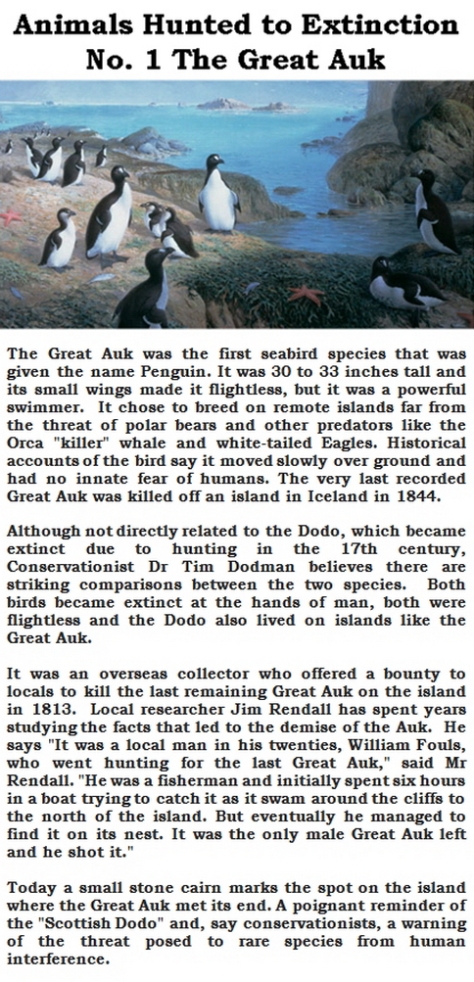
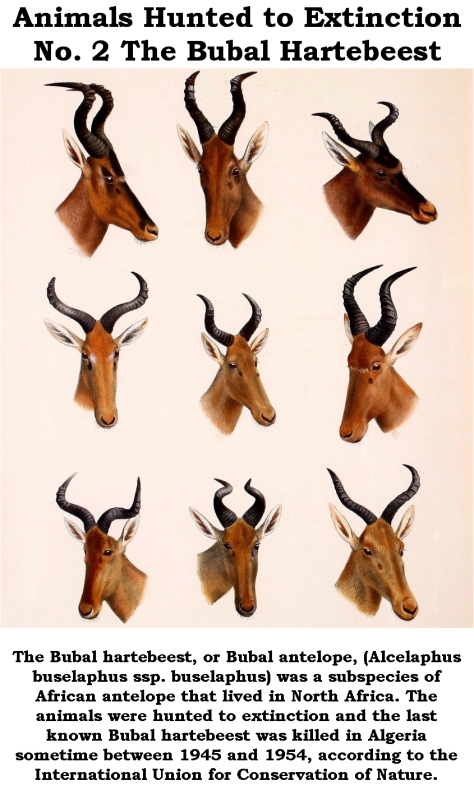

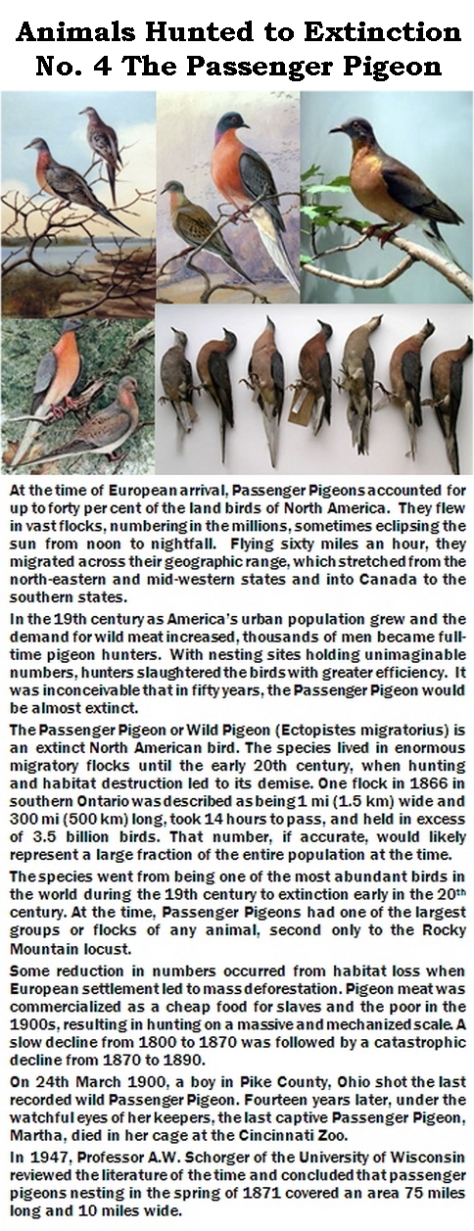

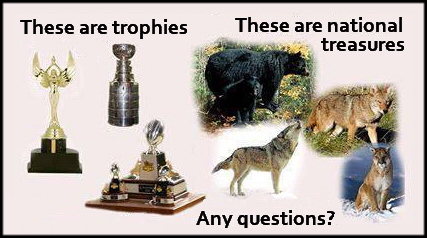
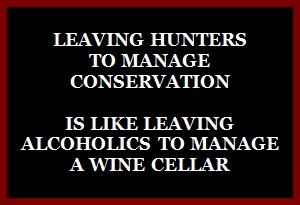
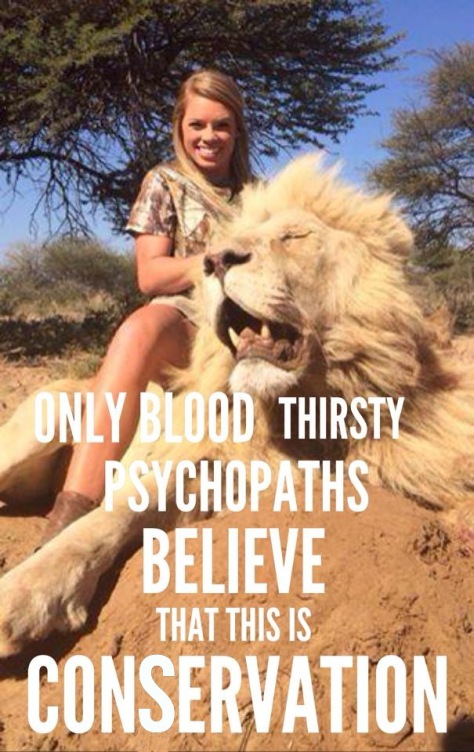



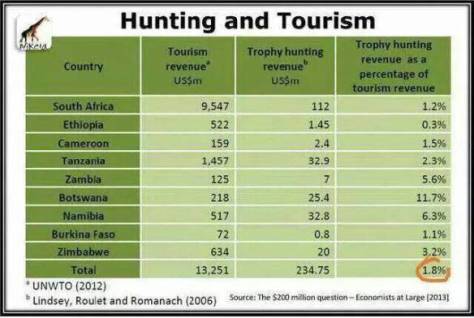

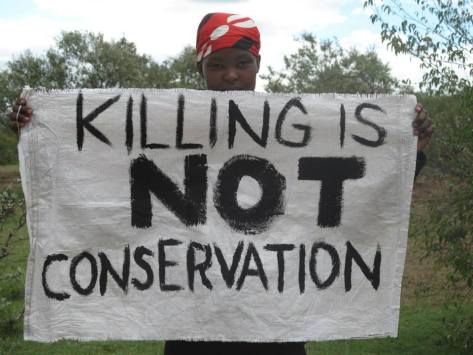


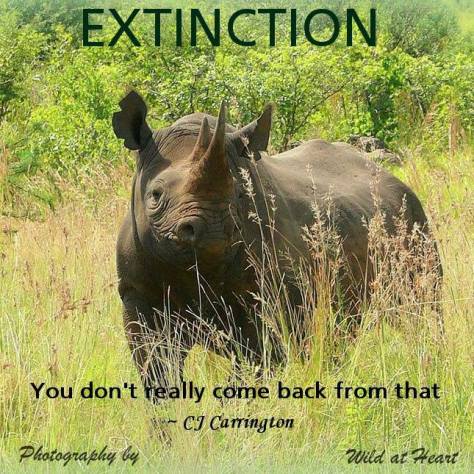
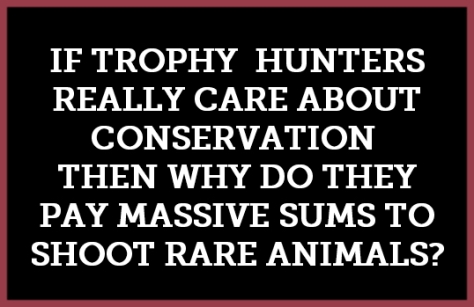
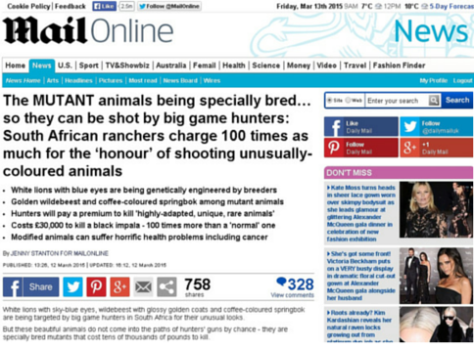







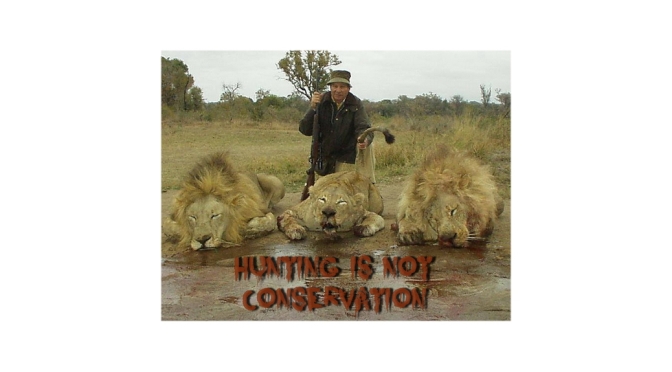
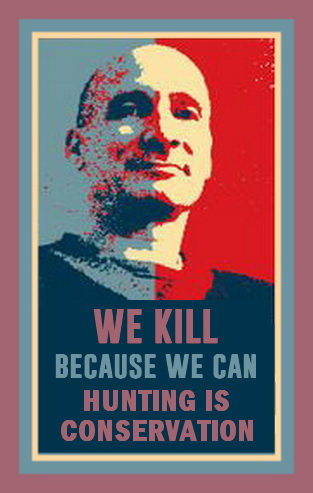
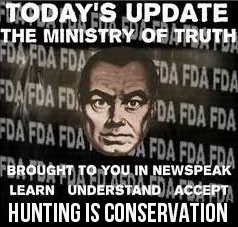




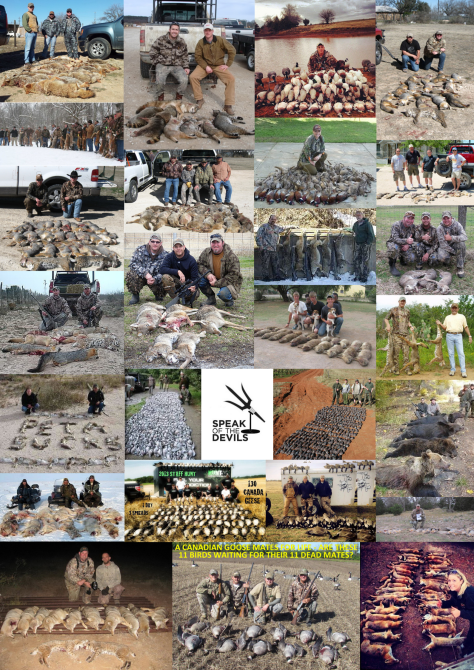


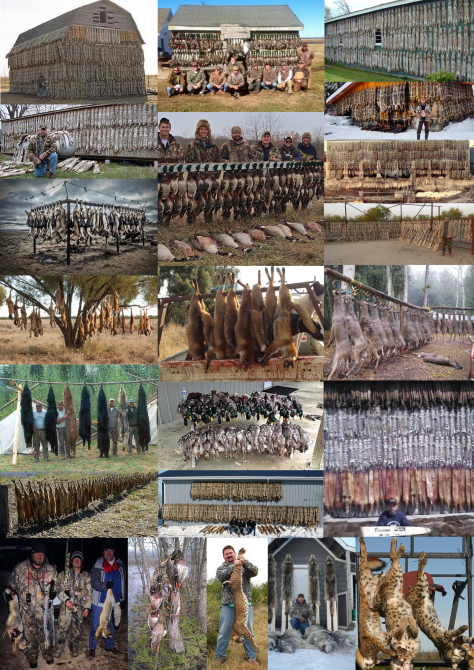

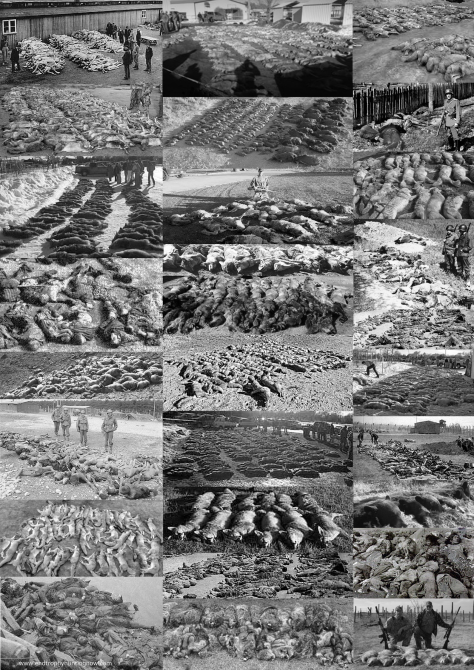












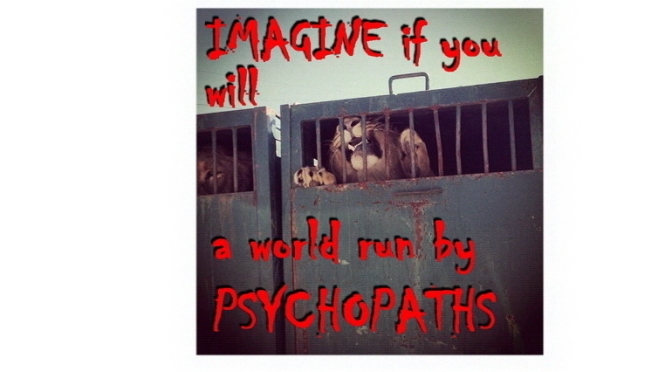



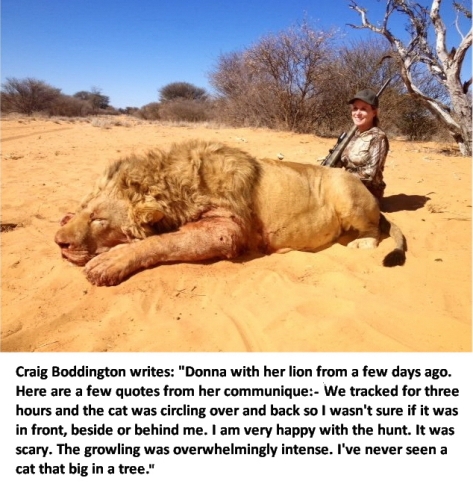






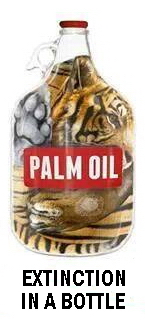 Say no to palm oil!
Say no to palm oil!































